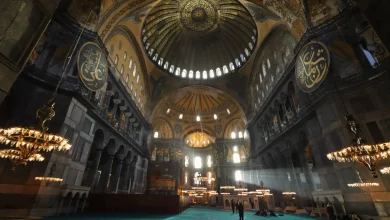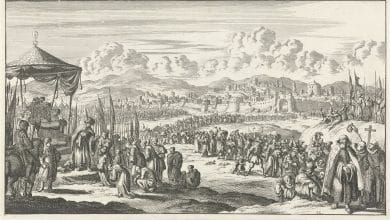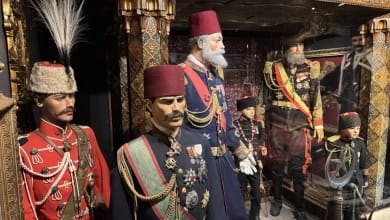
UNESCO has dedicated the year 2021 to Ahi Evran (founder of the Ahi order), Yunus Emre and Hacı Bektaş Veli. 2021 is the 700th anniversary of Yunus Emre’s passing while it is the 750th anniversary of Hacı Bektaş Veli’s death. It is also the 850th birthday anniversary of Ahi Evran. Therefore, various activities and projects to introduce these wise men of Anatolia are in the process of being implemented.
The reason for 2021 being the year of Yunus Emre and Hacı Bektaş Veli is related to a rumor about the lives of these two figures. According to the rumor, Hacı Bektaş Veli met with Yunus Emre and, following the events that developed between them, guided him to his student named Tapduk Emre. Some interpret this event symbolically.
Who Was Yunus Emre?
Yunus Emre (circa 1240–1321) was a renowned Turkish poet and Sufi mystic whose profound influence resonates in Turkish literature and spirituality even centuries later. Known for his devotion to the divine and his eloquence in expressing human connection to God, Yunus Emre remains an enduring symbol of love, unity, and spiritual reflection.
The Life of Yunus Emre
Yunus Emre was born in Anatolia, during a time of significant cultural and political transformation. While details of his life remain shrouded in mystery, it is widely believed that he was a disciple of Tapduk Emre, under whom he spent 40 years in spiritual learning and service. This mentorship deeply shaped Yunus’s worldview and poetic voice.
Revolutionizing Turkish Literature
In an era dominated by Persian and Arabic in literature. Yunus Emre took a bold step by writing in Old Anatolian Turkish. His choice made his poetry accessible to the common people, breaking the elitist barriers of his time. Through simple yet profound language, he conveyed universal themes of divine love, human destiny, and the interconnectedness of all beings.

Yunus Emre’s Key Works
- Yunus Emre’s poetry is preserved in two major works:
- The Divan: A collection of his mystical poems that explore themes of love, humility, and the pursuit of unity with the divine.
- Risaletu’n Nushiyye (Treatise of Advice): A didactic piece that offers guidance on moral and ethical living.
These works are celebrated not only as literary masterpieces but also as treasures of spiritual wisdom.
Yunus Emre’s poetry emphasizes love as the highest form of devotion. His verses reflect a yearning to transcend the material world and unite with the Creator. Some of his recurring themes include:
- Divine Love: The soul’s longing for closeness with God.
- Human Equality: The belief that all individuals are equal in their journey toward the divine.
- Unity with Nature: A deep respect for the natural world as a reflection of God’s creation.
Cultural Impact and Enduring Legacy
Yunus Emre’s legacy extends far beyond his time. His influence can be seen in:
- Modern Literature: His works continue to inspire poets and writers.
- Performing Arts: Television series, films, and musical adaptations bring his timeless messages to new audiences.
- Spiritual Practices: His teachings are revered in Sufi circles as a guide for spiritual enlightenment.
In Türkiye, Yunus Emre’s contributions are celebrated annually, and his poetry is taught as an essential part of the nation’s cultural and spiritual heritage.
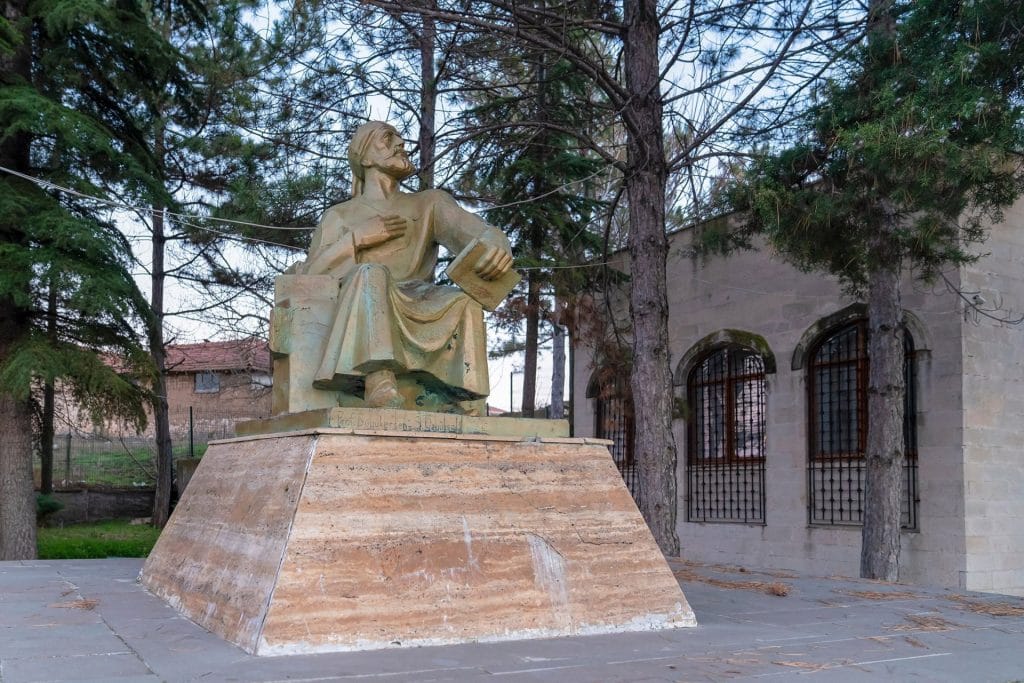
A Timeless Message for the Modern World
Yunus Emre’s words, though written centuries ago, still echo with timeless relevance. His emphasis on love, tolerance, and unity transcends cultural and religious boundaries, offering guidance in a world often divided by differences. By bridging the gap between the divine and the everyday, Yunus Emre reminds us that the path to enlightenment begins within us all.
“We love the created for the Creator’s sake.”
Understanding Yunus
Transferring his thoughts through Turkish poetry, Yunus Emre fundamentally shaped the understanding of both folk literature and the classical Ottoman literature called “divan literature.” The words and expression patterns he uses as well as the meanings and metaphors he attributes to them helped propel Turkish to being classified as a literary language.
While many of his poems are simple and understandable, some feature symbolism and use literary tools like contrasting phrases. Poetry with implicit meaning was called “şathiyye,” a common feature in Oriental literature and was reflected in Yunus Emre’s poetry, too.
Topics that cannot be understood by everybody or prone to misunderstanding are conveyed in a language that only those who know those subjects can understand. Thus, thoughts or feelings are conveyed without confusing people. What he expressed in these poems was analyzed by Sufi scholars over the subsequent centuries.
In order to understand Yunus Emre’s poems correctly, it is necessary to understand Sunni Islam, which is far from the moderate Anatolian Islam, in addition to the period he lived. In short, this is a form in which both the basic conditions of religion, called “zahir” and the moral and conscientious conditions called “batin”, are combined in one pot.
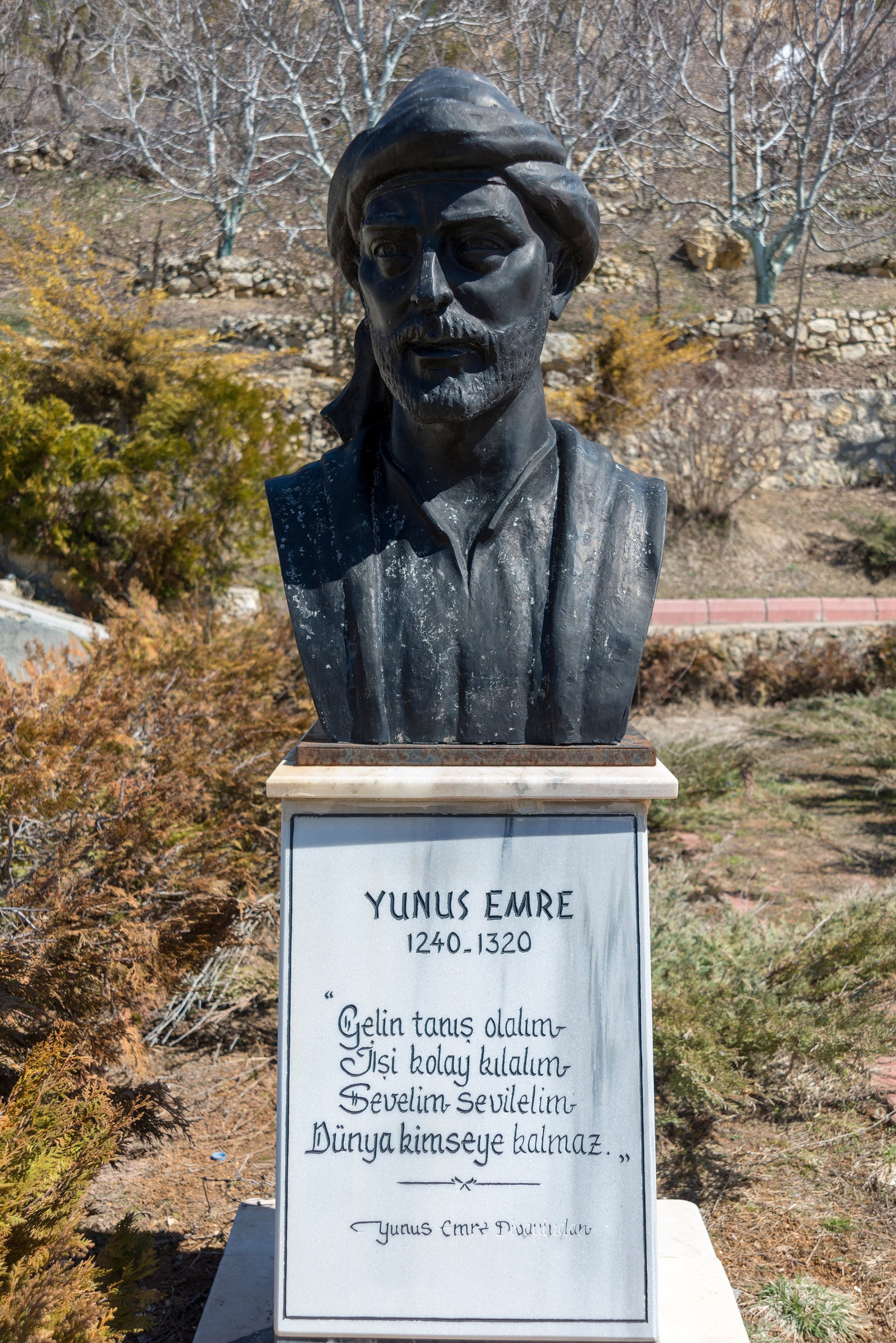
In one of his poems he says “if you broke your heart once, this is not the prayer you perform.” In another verse, he says “whoever does not pray, he does not become like a Muslim”. The poet, who invited humanity to remember and love Allah, frequently dealt with the subjects of death and the afterlife, mortality, immigration, poverty and dervishes in his poems. Divine love was the subject he dealt with the most.
According to him, love is above all. He says: “A person whose heart does not beat for Ar-Rahman (one of the 99 names of Allam meaning “the most merciful”) is like a town that has not become prosperous. Love matures, saves one from fears, cleans the soul by neutralizing the desire (egoistic requests).” According to him, every particle in the universe is a reflection and proof of God’s attributes.
In fact, Yunus Emre wants neither the world nor the afterlife. He ruminated on the divine but the concept of death was strongly rooted in the thinker’s mind. Yunus Emre shared the same philosophy as Rumi, that death is nothing but “meeting with the lover,” thinking of it not as extinction but as a rebirth in the realm of eternity.
Despite his beliefs, he never broke ties with the world. According to him, Islam and Sufism do not represent the philosophy of “a bite, a cardigan,” or hold a certain attitude towards the world order and structure. It means not to be enchanted by the world’s blessings. Everything should be interconnected and in harmony and that man should fulfill his worldly responsibilities. It is harmful if goods, property and gold (money) are in the heart, rather than the purse.
According to him, everything, including death, is valuable and beautiful in its own place and in its own time. For example, he writes for those who died young:
“To one thing in this world
I am heart-stricken, my soul writhes in pain
That is the ones who died at a young age
Like the harvest of green grain.”
– Yunus Emre
Follow us on osmanonline.live and osmanonline.me!
Read, watch, and stay updated with us as we strive to bring you the best content. Kuruluş Osman remains the most popular series, and we are here to keep you connected!

